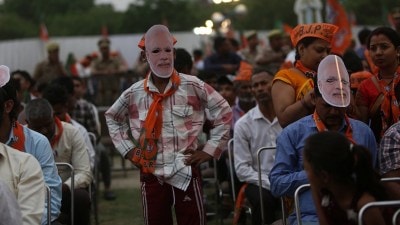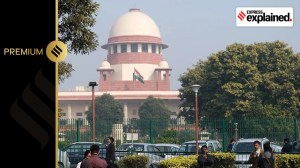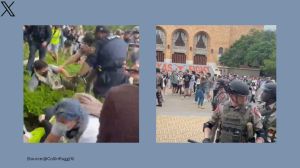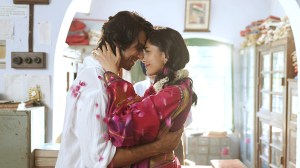- India
- International
Hundred Not Out
FD Zone Mumbai, an alternate space for documentaries and indie films, hosts its 100th session on Saturday.
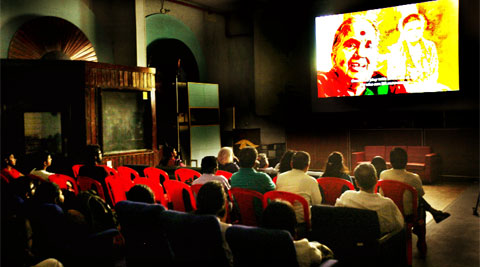 A screening at the Films Division of India headquarters.
A screening at the Films Division of India headquarters.
Once a week, 28-year-old Dhaval Ashar, a transportation planner living in the suburbs, makes a trek to south Mumbai. He is among the 40 or so regulars at the Peddar Road headquarters of Films Division (FD), India. These film buffs gather every Saturday to watch films they “would rarely get to see otherwise” at “FD Zone”, a free and open-to-all event where independent and documentary films are screened.
Launched on July 4, 2012, FD Zone’s inaugural session screened two documentaries, SNS Sastry’s I am Twenty and Ashim Ahluwalia’s John and Jane. It has since become a consistent feature, providing the city’s discerning audience an alternative to Prithvi@Vikalp, which is known for screening non-fiction content since its
inception in 2007.
It is a momentous occasion for FD Zone — a product of the new initiatives by a revived FD, introduced by its current director general, VS Kundu in 2012 — that will hold its 100th edition on July 12. “The main aim of the initiative is to develop a cinema culture and build an audience for non-fiction films in India,” says Kundu, who is credited for introducing dynamism in an organisation that had earned the reputation of being “lacklustre, sarkari”.
Apart from showing independent films, FD Zone has also become a platform to showcase films from FD’s vast and rich archive — from early newsreels and “shorties” to documentaries — that is a record of India’s post-independence
history on celluloid.
The screenings are usually curated packages — a combination of films put together around a theme, done by a group of close-knit independent and documentary professionals in Mumbai.

This week will see the screening of three rare films on Hindustani classical music and musicians from the FD archive, Pramod Pati’s experimental documentary on Ravi Shankar that travels between his home and the stage, SNS Sastry’s docu-fiction film on Ustad Amir Khan, and Gulzar’s feature-length film on the music and family life of Bhimsen Joshi.
“It is an attempt to create a dialogue on diverse filmmaking practices. Fellow filmmakers and audiences have supported and enthusiastically participated in making this a space of vibrant discourse on film, politics, society, history, art and entertainment and also an important place for the collective viewing of cinema,” says Avijit Mukul Kishore, a filmmaker who curates for FD Zone with other city-based filmmakers such as Surabhi Sharma and Pankaj Rishi Kumar. The screenings are followed by an interaction with the filmmaker, if he’s present, or the curator of the films.
The filmmakers are given freedom in matters of curation, a step further in shedding FD’s earlier tendency of showing government propaganda films. Although the emphasis is on non-fiction cinema, it also occasionally screens fiction, the criteria focusing on “content that is provocative and stimulates the intellect”.
The turnout has been patchy, but FD Zone has its fair share of regulars that range from students, movie buffs, filmmakers, old and young. The initiative has largely relied on social media to reach out to the audiences. A weekly feature in Mumbai, the programme has been running once a month in seven other cities such as Delhi, Bangalore and Kolkata in partnership with local organisations.
“At the heart of FD Zone is the collaborative aspect. It’s all happening due to a shared passion for cinema,” says Kundu, who says that the next step is taking the programme to villages.
sankhayan.ghosh@expressindia.com
Apr 25: Latest News
- 01
- 02
- 03
- 04
- 05











